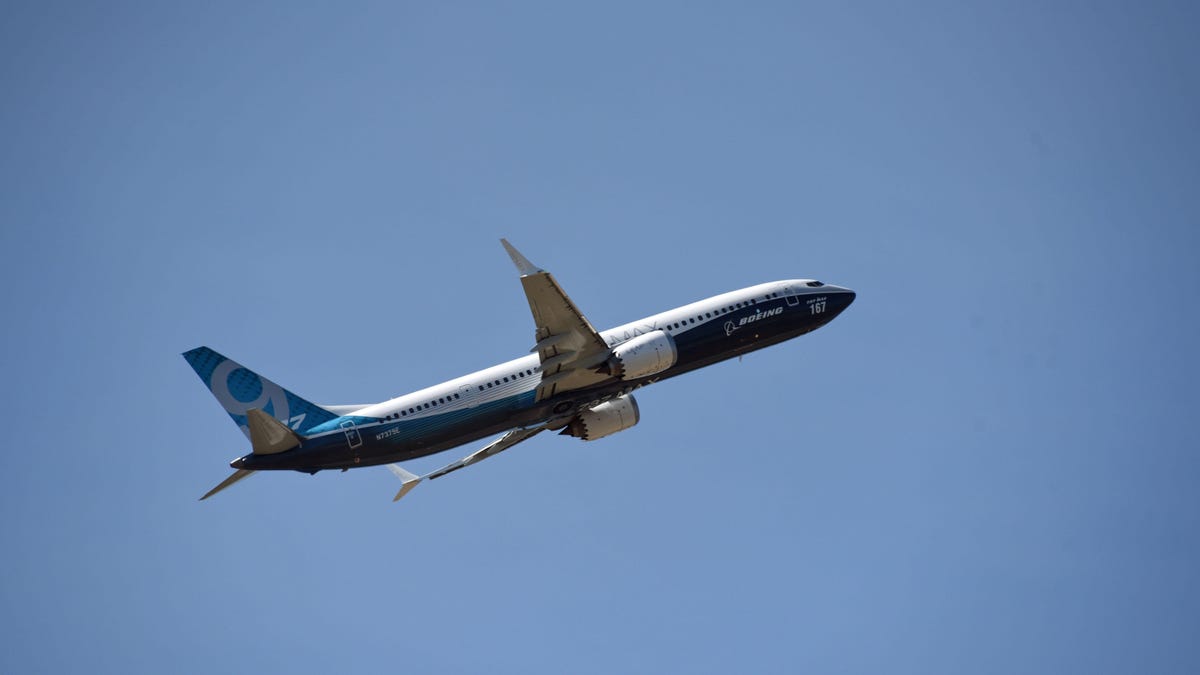Boeing and FAA begin 737 Max recertification flights
The flights, which will test a control system blamed for two crashes killing 346 people, are a critical step before the aircraft can carry passengers.

A Boeing 737 Max 9 files above the 2017 Paris Air Show.
Boeing and the FAA conducted the first of a series of recertification flights on Monday that will determine whether the 737 Max airliner will be allowed to enter commercial service again. During the three-day process, investigators will observe the Max's performance and evaluate Boeing's changes to the MCAS flight control system, which has been largely blamed for two crashes in 2018 and 2019 that killed 346 people.
The recertification process is a crucial step for ending a worldwide grounding order that been in place since March 2019. The FAA said n a statement that its own pilots and engineers, along with some from Boeing, will participate in the flights.
"The FAA is following a deliberate process and will take the time it needs to thoroughly review Boeing's work," the agency said. "We will lift the grounding order only after we are satisfied that the aircraft meets certification standards."
The 737 Max 7 flew a series of loops on the second leg of its flight today from Moses Lake, Washington to Seattle.
The aircraft that flew Monday is a 737 Max 7, the smallest member of the Max family. The aircraft took off this morning from Boeing Field in Seattle and flew for about two hours over central Washington with a stop at Moses Lake, Washington, where Boeing operates an aircraft testing and storage facility.
Pilots will attempt a number of flight maneuvers and confirm that MCAS, which automatically adjusts the aircraft's trim under certain conditions, isn't activating erroneously. Boeing says it has updated MCAS by adding more layers of redundancy and has reevaluated pilot training to spend more time on the feature than it had when the Max was originally debuted in 2016.
If the FAA approves Boeing's fixes and the updated training materials without delays, most reports say the Max could get the approval to carry passengers in the US as early as September. Boeing will also need approval from aviation safety agencies in Canada, Europe and other countries before the Max can fly in the airspace.

